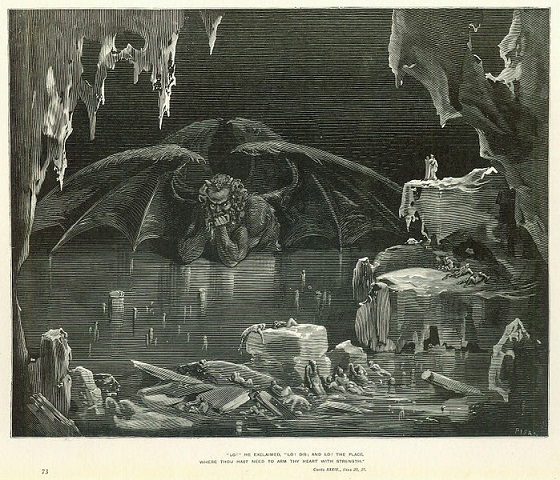
Courtesy of wikipedia.org
The woman on Facebook swelled with outrage when I responded to her attack on the Kyle Rittenhus jury after they’d acquitted the young man of murder. My thought was different from hers. I said we needed to trust our institutions even though we sometimes suffer disappointments. A jury that had heard hours of testimony and sifted through copious records deserved our thanks even though their verdict differed from our ill-informed opinions. Trump followers made a similar mistake when they questioned the integrity of our 2021 election where their candidate lost the Presidency. In reply to my comment, the woman sniffed that I was condescending.
She has a right to her opinion on both counts. We live in a democracy, after all. Her fury raises an essential question, nonetheless. Can we trust our institutions?
In his Inferno, Dante threw Lucifer, Judas, Brutus, and Cassius into the deepest pit of hell. Why? Because these figures were guilty of a crime worse than murder. They were history’s arch betrayers.
Without trust, no relationship can exist. The bonds of the family fall away as do tribal associations. Human institutions disintegrate without it be they religious, commercial, educational, scientific, political, or geopolitical. Like the warp and woof of a loom, trust moderates tension between personal aspiration and cooperation. Without it, the only relationship possible is self-love.
The American tragedy before us is our eroded faith in our institutions. Doubt, once planted, makes us so wary of one another that we are capable of turning upon former allies. Already, the fall out from the January 6. 2021 insurrection has participants questioning another’s loyalty.
The reasons for mistrust are many. A Bookings Report exposes several. High levels of economic inequality; a plethora of guns and the growth of militias are among them. Add a variety of hot-button issues, and we find the single idea that holds the nation together is its belief the “other side” doesn’t play fair.
Given the political climate, how do we inject trust into our society? Doubt is an ingrained human response that inserts itself into all human endeavors. Social media was designed to unite us, you may recall. Today, we fear it will manipulate us.
Jacquelyn Schneider, a Fellow at the Hoover Institution, thinks our future security depends upon our ability to plan for failure. (“A World Without Trust,” by Jacquelyn Schneider, Foreign Affairs Jan/Feb 2022, pg. 29.) By that, she means we should create systems with good defense instead of offense strategies. Doing so, she says, gives structures resiliency. Her remarks are directed to technological development, but it’s good advice for societies, too.
We want our institutions to be reliable. Perfection is beyond human endeavor, so faith in what we create may not always be justified. Jury tampering is possible. Votes can be miscounted. Nonetheless, to encourage resiliency, we might begin by assuming our systems are meant to work and apply remedies when they don’t.
Even better, let us start with ourselves. If we believe we can be trusted, we might extend a similar trust to our neighbors. From there, we could expand our faith to jurists and election workers, and even to doctors who advise us to wear masks during a pandemic.
Extending goodwill beyond our comfort level may help us escape the deep hole into which we’ve dug our country. Now, more than ever, we need each other. To restore our democracy, we don’t require legislation. We need a drop of trust in others. Without it, we become anarchy’s playthings.
